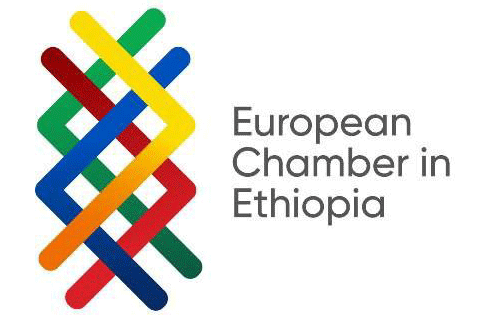
Ethiopian Securities Exchange CEO Speaks of Building a Stock Exchange for Ethiopia's Future: Jobs, Investment, and Long-Term Growth
The European Chamber in Ethiopia hosted its latest monthly CEO networking event on June 13, 2024, featuring Tilahun Esmael (PhD), CEO of the Ethiopian Securities Exchange. The CEO acknowledged the strain of providing sufficient government jobs for a population exceeding 120 million. He emphasized the urgent need to nurture the private sector, aiming for it to drive at least 70% of future job creation. This focus is fueled by projections of a staggering 20 trillion birr public sector funding gap over the next decade, with annual increases of 20-25% expected. The current system, reliant on tax revenue that covers less than half of government expenses, necessitates alternative financing solutions. Currently, some of the government’s funding comes from a patchwork of loans, grants, deficit spending, and even occasional borrowing from local sources.
Reflecting on Ethiopia’s reliance on foreign borrowing for development and the need to expand domestic financing options, Tilahun says, “If the capital market is created, the government could issue marketable treasury bills, attracting investment from a broader range of sources – commercial banks, individuals, businesses, and potentially even foreign investors. Both the government and private sector need significant long-term finance, and that’s exactly what capital markets do.” While advocating for exploring the local currency bond market – currently receiving investment only from banks and the nation’s two pension funds to which both the public and the private sector contribute – the CEO cautioned that results wouldn’t be instantaneous.
Beyond bank loans, long-term financing remains a hurdle for Ethiopia’s private sector. The CEO pointed out the personal risks associated with traditional financing methods. Securing loans for projects exceeding 10 years becomes a challenge, often requiring collateral like homes or entire companies, essentially putting families’ financial security at stake. “The question is how can some of the big projects that we want to have in this economy be financed through equity capital. It could be the next fertilizer company, the next agrochemical company and the next large agriculture plantation which cannot be financed the way we have been financing businesses. Much of the FDI that comes into Ethiopia is actually financed in this way through equity capital,” says Tilahun. He reiterated that the two core goals of the exchange in capital markets is financing for the private and public sector, while acknowledging markets are not a panacea in terms of access to finance for the private sector even in a developed economy.
The Ethiopian Securities Exchange anticipates a future equity market. The plan includes listing some state-owned enterprises (SOEs) on the exchange. Telecom Ethiopia is already publicly owned, and under the Ethiopian Investment Holdings (EIH), five additional SOEs have been identified as potential listings. These companies have undergone listing readiness assessments, paving the way for potential partial or full privatization in the future. “We have almost more than 16 banks, all the major banks as our shareholders, around 12 insurance companies and additional about 17 non -financial entities as shareholders of the exchange. We bring an added value by facilitating the interbank money market,” says Tilahun.
To cater to Small and Medium Enterprises (SMEs), the exchange plans to establish a growth market. Similar to the main market, this platform will have quality control measures. However, the listing requirements will be less stringent. Companies on the growth market might not have a long track record (less than 3 years) or audited financial reports, but they should demonstrate a clear path for future growth. This distinction between the main and growth markets allows promising SMEs to access capital even if they don’t meet the stricter criteria of the main market. This initiative, encompassing both equity and debt financing, represents a key goal for the exchange.
The CEO reflected that the development of capital markets is shifting globally with a shrinking number of listed companies alongside a rising market capitalization. He mentioned the New York Stock Exchange with a market cap that has been steadily climbing over the past three decades, despite a decrease in the number of listed companies. He said this trend seems to be mirrored across Africa. “The entire market capitalization in Africa is not more than 1.25 trillion US dollars. That’s most likely less than the Thailand exchange or any of probably the major Asian exchanges. The Johannesburg stock exchange takes 90 % of it while other countries divide the remaining 250 billion dollars. In these markets, we are seeing a limited number of listings but higher market valuations. Capital markets are trying to create depositors of value,” Tilahun says. A key objective for the investor side lies in fostering an ecosystem that encourages Ethiopians to save even small, incremental amounts. This would ultimately create a substantial pool of capital. To achieve this, the CEO highlights the need to significantly enhance the ability to contribute to pension funds and collect smaller investments. “Ethiopia saves about 30% of its GDP, which is a significant figure and probably one of the few things that are higher compared to other countries in the region. But I’m afraid that much saving has not translated into financial saving,” reflects Tilahun.
The success of a capital market hinges on attracting both high-quality companies and interested investors. The private sector needs to establish strong businesses with sound corporate governance and financial reporting. These companies must then be enticed to list on the exchange, choosing to raise capital through this public market over traditional methods such as bank loans, private equity, or self-financing. “When economies grow, our ability to save increases, but our ability to save it in something appropriate does not increase simultaneously. Capital markets offer a solution for that,” Tilahun says.
Summarizing the benefits of the capital market, the CEO mentioned that it would help the government raise finance through issuing treasury bills and bonds, creates a platform for companies to raise capital through equity markets, fosters a culture of saving and financial investment and enables individuals to invest in a wider range of financial instruments beyond the current trend of focusing on real estates.
latest News
EuroCham Launches a New Office and FDI Incubation Center
February 1, 2026
EU and EuroCham Sign Grant to Boost Ethiopia’s FDI competitiveness
November 22, 2025
EuroCham Networking Event Discusses New Income Tax Law
October 22, 2025
EuroCham Urges Reconsideration of EUDR Timeline
September 29, 2025
EuroCham Conducted Technical Discussions with Outgoing NBE Governor
September 17, 2025






